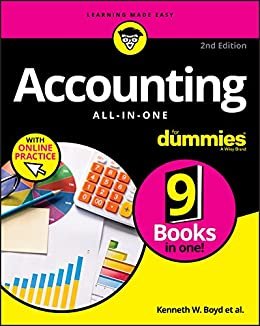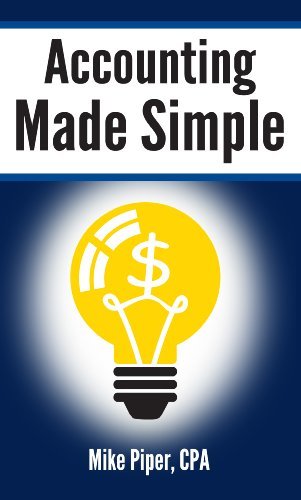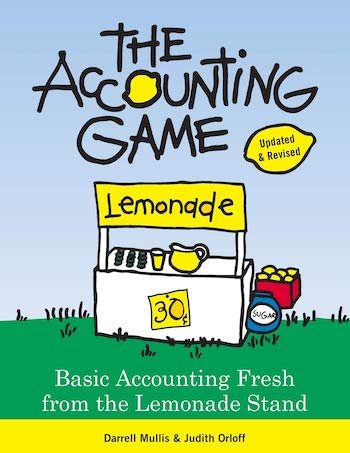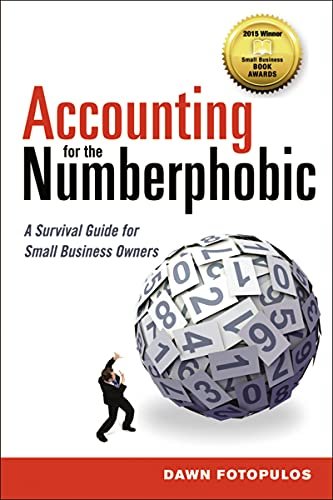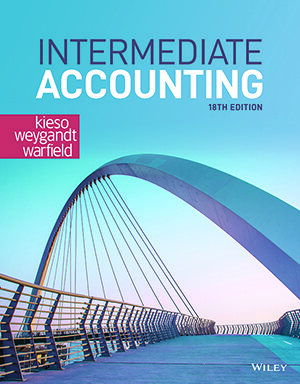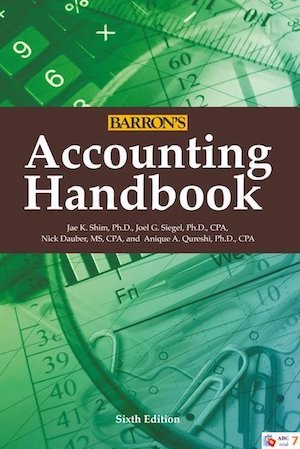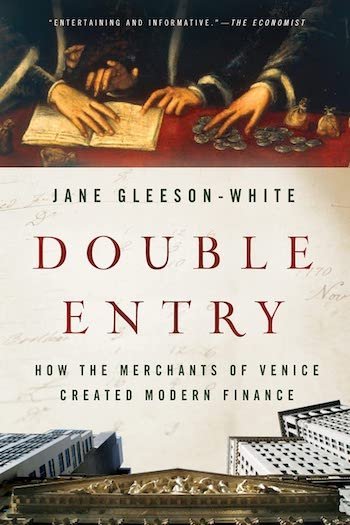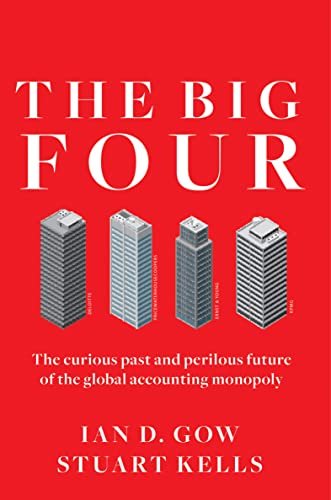The Top 10 Accounting Books
Estimated Reading Time: 10 minutes
Financial literacy is vital, and sharp accounting skills are crucial if you want to help any business succeed.
From tax planning to making the right decisions based on accurate financial information, having secure, solid accounting knowledge is key. Even if it’s knowledge of the history of accounting, any additional accounting knowledge will only enhance you as an accountant and individual.
With an overwhelming amount of accounting books out there, we’ve assembled a list of our top 10 accounting books that are informative for many different accounting audiences. Whether you’re just entering into the accounting industry or you’re a tried and true veteran accountant, keep reading to find the best accounting book for you.
Accounting All-in-One For Dummies
(Best all-around)
Accounting All-in-One For Dummies is part of the dummies franchise, which translates difficult topics or concepts into easily digestible and useful information.
This specific book, written by Kenneth W. Boyd, provides the fundamentals of accounting for the average reader. There is no technical jargon obstacle to worry about. By presenting accounting information in more neutral, common terminology that comprehensively covers the necessary information, you can easily learn about new tips, terms, and accounting techniques.
While the book is great for accounting fundamentals, it also includes more advanced topics like making financial decisions or detecting fraud. The book even includes access to online quizzes for each book section to help sink in the skills and information you learn.
This accounting guide is a great resource or training manual for new hires, accounting students, or recent graduates entering the accounting industry, but it could also be used as a refresher course for experienced accounting professionals to update and refresh their knowledge.
This is the best overall book for understanding accounting at the basic level.
Accounting Made Simple: Accounting Explained in 100 Pages or Less
(Best for self-employed)
This book, authored by Mike Piper, is a useful tool for accountants working by themselves to learn the ropes of accounting.
The book provides—in “Plain English”— the building blocks and basics for aspiring accountants, even those with a non-financial background. Another great aspect of this book is that it’s manageable in length. Because the book is only 100 pages, reading it doesn’t require a lot of time; you could spend a few afternoons knocking it out.
Some of the topics the book covers include reading and preparing financial statements, journal entries, Generally Accepted Accounting Principles (GAAP) concepts/assumptions, and inventory and costs of goods sold. By providing a general framework, accountants, even those learning all of this and working by themselves, can integrate more advanced accounting concepts and methods to improve their knowledge and skills.
The Accounting Game: Basic Accounting Fresh from the Lemonade Stand
(Best for beginners)
This is another fantastic accounting book for beginners.
Darrel Mullis and Judith Orloff frame accounting through the picturesque childhood business venture of a lemonade stand (which all of us can surely relate to). This means the authors break down concepts into simple explanations and relatable language, even including step-by-step illustrations and visual aids. If you have trouble reading about accounting topics, through the lemonade stand metaphor, this book makes somewhat dry material entertaining and engaging.
This highly interactive book also includes quizzes and worksheets to drive home the information you learn, and there are even sample spreadsheets for you to use in your accounting practice too. Additionally, the book is only 179 pages, unlike other heftier introductions to accounting books. Accounting students, startup owners, and those interested in entering the accounting world would greatly benefit from reading this book.
If you find yourself needing more complex examples, simply supplement this book with another that suits your needs.
Accounting for the Numberphobic
(Best for experienced accountants)
While the sheer to-do list of accountants can frighten even the best accountants, Steven M. Bragg’s book of the best accounting practices can alleviate the seemingly impossible nature of accounting.
Bragg walks you through, step-by-step, the need-to-know information regarding the most advanced accounting tips, strategies, and techniques. Some of the topics Bragg covers include increasing productivity, taxation, billing, and monitoring accounting systems. With over 400 best practices, you’re sure to find some techniques you can use in your practice.
Even better, this edition features a seven-minute podcast for each chapter on the book’s website! Read this book to develop your accounting skills and department, and keep the resource on standby to refer to whenever you need advice.
Intermediate Accounting
(Best for intermediate students)
This accounting book—written by Donald E. Kieso, Jerry J. Weygandt, and Terry D. Warfield—is best for accounting students already familiar with accounting principles but seeking a more advanced, technical understanding of accounting.
In a lesson format with assessments embedded through the book, this book aims to foster critical thinking skills, reducing the emphasis on memorization in accounting and encouraging analysis and interpretation as you would in your real-world accounting practice.
This is a good choice for students because it provides hands-on insight to show accounting students the what, why, and how of accounting.
Barron’s Accounting Handbook
(Best for intermediates)
This book is not for the faint of heart, nor beginners to accounting.
With over 1000 pages and an extensive A-Z dictionary of accounting terms, this book—written by a group of 4 accounting experts—is an authoritative reference book to use throughout your accounting practice. From tax forms and preparation to financial reporting requirements and compliance, this book has you covered.
Whether you’re a CPA, accountant, accounting manager, or CFO, this book is a must-have on your bookshelf. It’s one of the best refresher materials to have, and you don’t need to read whole chapters to take something away from the material.
Double Entry: How the Merchants of Venice Created Modern Finance
(Best for accounting history)
This book is a perfect read for accountants and bookkeepers alike (and even non-accounting or bookkeeping professionals).
Author Jane Gleeson-White discusses the origins of accountancy and capitalism, which helps put into context where we are now in the United States and Europe. By traveling back to 7,000 B.C. and leading up to the 2008 economic crisis, this book is an interesting historical tale with valuable insights applicable to your practice.
The book even won a literary award—the Nib Waverly Library Award for Literature—in 2012, which exemplifies the great storytelling and captivating writing style of this book (even for a book with accounting/bookkeeping content).
A White-Collar Profession: African American Certified Public Accountants since 1921
(Best for American accounting history)
While this book isn’t one to have to learn or refresh yourself on accounting basics or new techniques, Theresa A. Hammond’s book is one you must have on your bookshelf.
As the book notes, less than 1% of CPAs in the United States are Black. Why is this the case? Hammond answers this question in the book and discusses the history of early Black accountants who fought for a place in the accounting industry against systemic, institutional racism and other nearly insurmountable obstacles.
For a full history of American accounting, be sure to check out this book. It’s an excellent choice to expand your understanding of the accounting world and the experiences of other accountants.
The Big Four: The Curious Past and Perilous Future of the Global Accounting Monopoly
(Best for the future of accounting)
Ian D. Now and Stuart Kells dive into the rise of the largest accounting firms in the world—KPMG, EY (Ernst & Young), PricewaterhouseCoopers, and Deloitte—in this book.
With their combined $130 billion per year in revenue and the immense scrutiny they face, studying the “Big Four” provides an excellent platform to analyze the past, present, and future of accounting. While the book primarily focuses on the Big Four, the projections and insights gleaned from an analysis of the Big Four shed light useful for accounting and firms in general.
If you’re an experienced accounting professional, a student pursuing accounting, or simply interested in the global economy’s future, read this book.


